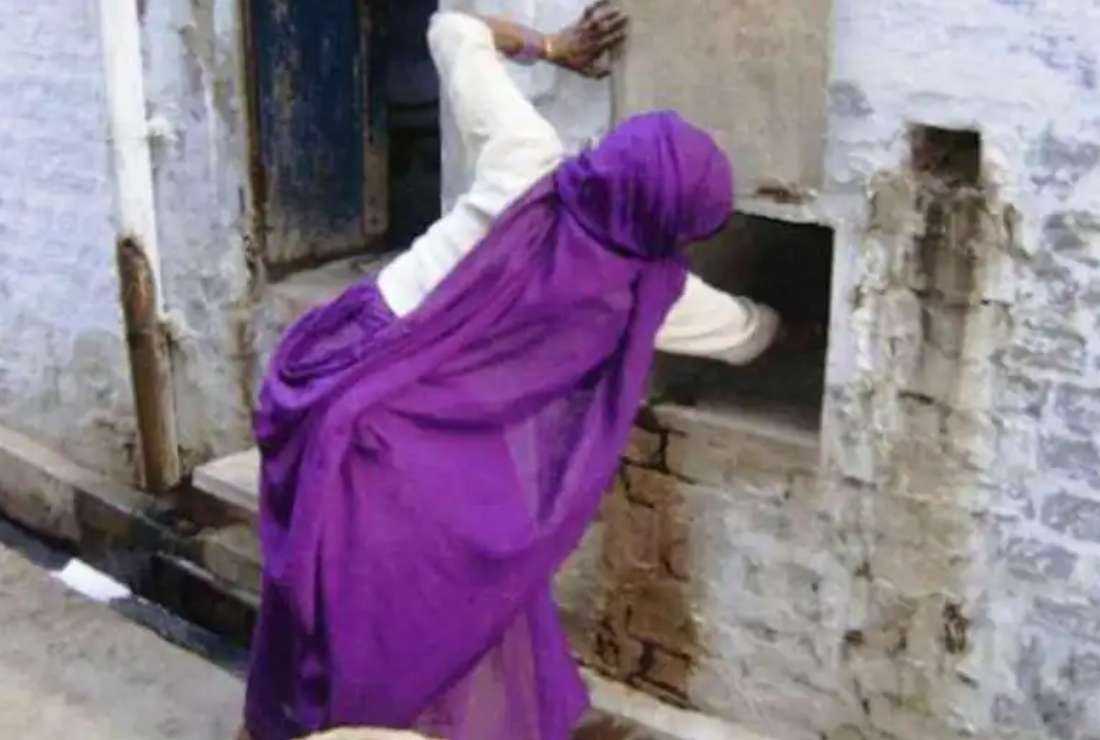Supreme Court directs federal and provincial governments to eradicate the ‘centuries-old, stigmatizing social practice’

A file photo of a female manual scavenger cleaning a dry pit latrine by hand in an Indian town. (Photo supplied)
India’s top court has ordered total eradication of the inhuman practice of manually removing human excrement from toilets, septic tanks, or sewers by mostly Dalits or former untouchable workers in the country.
The Supreme Court in its Oct. 20 has directed the Federal and provincial governments in the country to take required steps to end the “meanest task” which is one of the “centuries-old, stigmatizing social practices.”
The top court also revised the individual compensation for death while cleaning underground sewers from one million to three million Indian rupees (US$ 36,106). In case of permanent disablement, it directed compensation of two million Indian rupees and for other disabilities one million Indian rupees.
“The court order has once again proved that our governments have failed to put an end to such an inhuman practice and restore respect and dignity to our own brothers and sisters engaged in manual scavenging,” she told UCA News on Oct. 24.
The nun who has been associated with the struggles to end the centuries-old practice though felt the court should have further raised the compensation for death and disabilities.
“It would have acted as an effective deterrent and helped to discontinue the practice of employing people to clean sewers,” Baltazar said.
Government and private bodies still continue to engage people in manual scavenging in the country though the practice has declined since the enactment of the Prohibition of Employment as Manual Scavengers and Their Rehabilitation Act in 2013.
The Federal and state governments told the top court that many steps were taken to end manual scavenging and also rehabilitate people still involved in it.
The court said governments “are duty bound to ensure that the practice is completely eradicated.”
“Each of us owe it to this large segment of our population, who have remained unseen, unheard and muted, in bondage, systematically trapped in inhumane conditions,” the order said.
The judges said all citizens have a duty “of realizing true fraternity, which is at the root of these injunctions” and reminded that the Constitution places “great emphasis on the value of dignity and fraternity, for without these two all other liberties are chimera, a promise of unreality.”
They further called upon citizens “to awake and arise, so that the darkness which has been the fate of generations of our people is dispelled, and they enjoy all those freedoms, and justice [social, economic and political] that we take for granted.”
India still has 58,098 people involved in manual scavenging, according to some reports but there is no official information available on their exact numbers.

